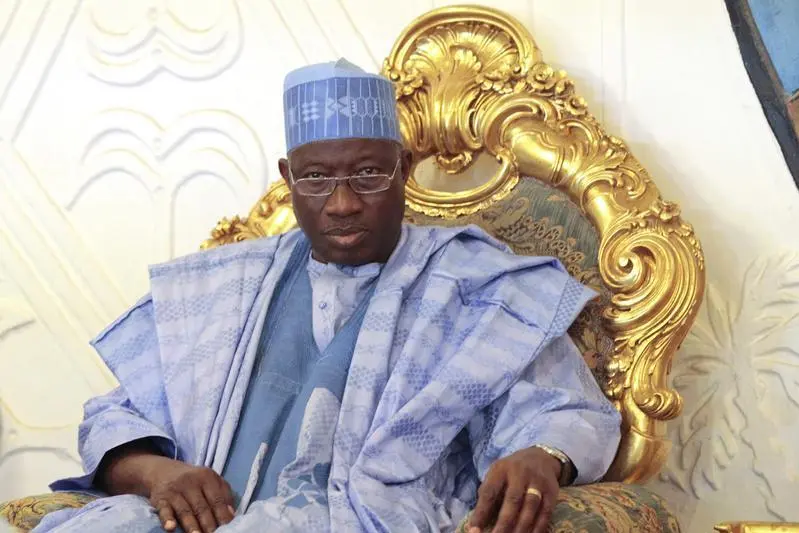PHOTO
ABUJA- Nigeria's president unveiled a record 16.39 trillion naira ($39.8 billion) budget for 2022 on Thursday, with a projected 25% year-on-year rise in government spending as the economy struggles with the impact of the pandemic.
The plan for Africa's top oil exporter assumes crude production of 1.88 million barrels a day and an oil price of $57 per barrel, Muhammadu Buhari told a joint session of the Senate and the House of Representatives.
The deficit would rise to 6.26 trillion naira, or 3.39% of GDP, funded by 5.01 trillion naira of new borrowing, 90.73 billion naira from privatisations and 1.16 trillion naira from drawdowns on loans secured for specific development projects, he said.
"Some have expressed concern over our resort to borrowing to finance our fiscal gaps. They are right to be concerned. However, we believe that the debt level of the Federal Government is still within sustainable limits," he said.
The economy is projected to grow by up to 3% this year after it expanded by 5% in the second quarter. It contracted in 2020 due to the pandemic, though it managed to exit recession in the fourth quarter, but growth is fragile.
Razia Khan, head of research for Africa and the Middle East at Standard Chartered, said Nigeria had long favoured increased spending as a means of boosting growth, and the 2022 budget was in line with Buhari's economic management style since 2015.
"Security also remains important to overall economic outcomes. But in this instance, it may not be as simple as just increasing the spending allocation," she said.
The armed forces have been struggling to contain Islamist insurgencies in the northeast, a spate of mass abductions and deadly bandit attacks in the northwest, conflicts between farmers and herders in many areas and a general surge in crime.
The World Bank has said that rising insecurity, along with high food inflation and stalled reforms, was a drag on growth and a factor in rising poverty.
LOW REVENUES
Buhari confirmed a previously published 2022 GDP growth forecast of 4.2% and an inflation projection of 13%.
"Our target over the medium term is to grow our Revenue-to-GDP ratio from about 8 percent currently to 15 percent by 2025," Buhari said. This would be achieved by enhancing tax and excise revenues through reforms and administration measures, he added.
"Put simply, we do not have a debt sustainability problem, but a revenue challenge which we are determined to tackle to ensure our debts remain sustainable."
Nigeria has passed a string of record budgets since Buhari took office in 2015, but the country has struggled to fund the spending plans due to low revenues. The pandemic has added to the revenue problems.
According to IMF data, Nigeria has among the lowest revenues globally, with general government revenue between 2015 and 2019 at 7.9% of GDP, compared with 12.7% in South Africa and a global average of 29.8%.
Buhari said that a fuel subsidy which his and previous administrations have tried unsuccessfully to scrap was continuing to erode revenues. Attempts to remove it have triggered protests and strikes.
Despite being a major oil producer, Nigeria meets the bulk of its need for fuel and other refined products through imports because it has been unable to maintain functioning refineries.
($1 = 412.0000 naira)
(Additional reporting by MacDonald Dzirutwe and Camillus Eboh Writing by Estelle Shirbon Editing by David Goodman and Andrew Heavens) ((estelle.shirbon@thomsonreuters.com))





















